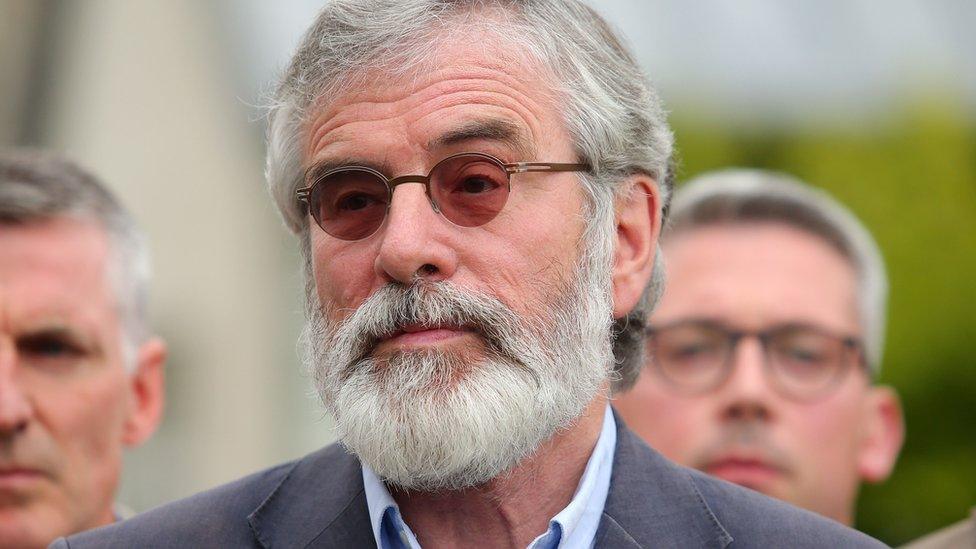Stormont talks paused for the weekend
- Published
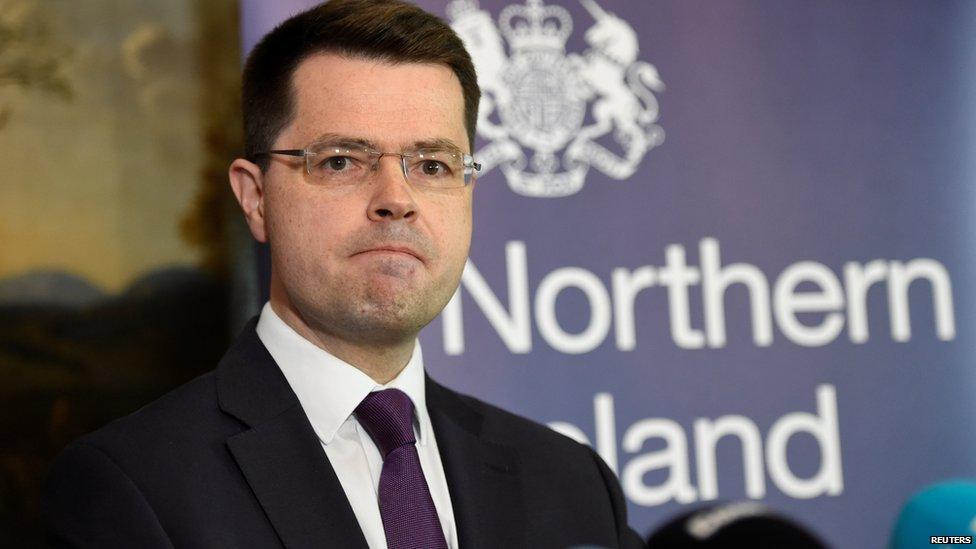
Secretary of State James Brokenshire may press ahead to set a budget
Talks at Stormont between Sinn Féin and the DUP have ended with no agreement.
Northern Ireland Secretary of State James Brokenshire hosted the talks at Stormont on Friday and Irish Foreign Affairs Minister Simon Coveney was also there.
Efforts to reach a deal to restore devolution are due to resume on Monday.
If there is no agreement, Mr Brokenshire will press ahead with legislation to approve a budget for Northern Ireland.
Allow X content?
This article contains content provided by X. We ask for your permission before anything is loaded, as they may be using cookies and other technologies. You may want to read X’s cookie policy, external and privacy policy, external before accepting. To view this content choose ‘accept and continue’.
DUP leader Arlene Foster and Sinn Féin President Gerry Adams were at Stormont on Friday as talks continued.
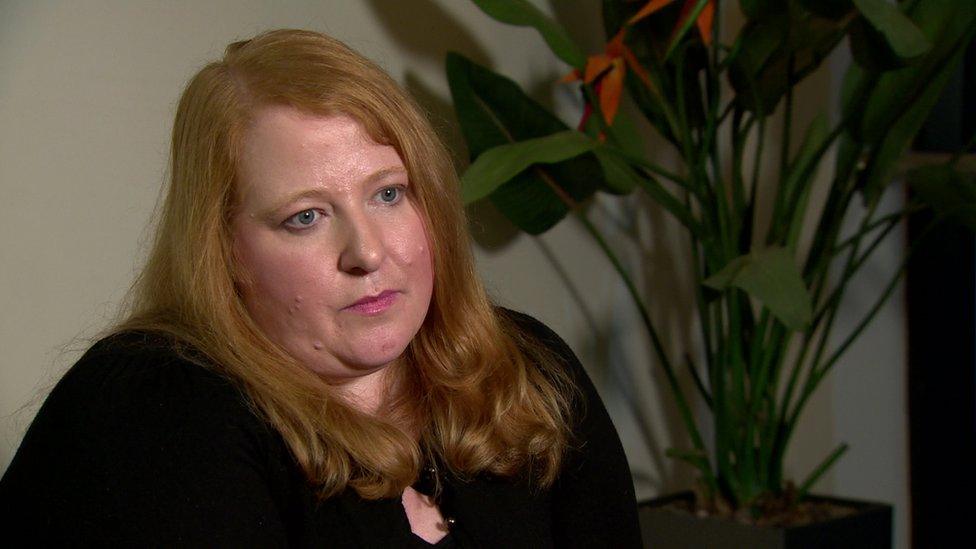
Naomi Long said the talks had left little room for parties other than the DUP and Sinn Féin
Earlier, speaking on the BBC Radio Ulster's Talkback programme, Alliance leader Naomi Long said there was a lack of structure to the talks process with little opportunity for the other parties to make their voices heard:
"It has been reliant on Sinn Féin and the DUP taking time to engage themselves to try and resolve their differences.
"But it hasn't been a structured process. It hasn't been a process where others have been able to contribute to try to find ways through those difficulties."
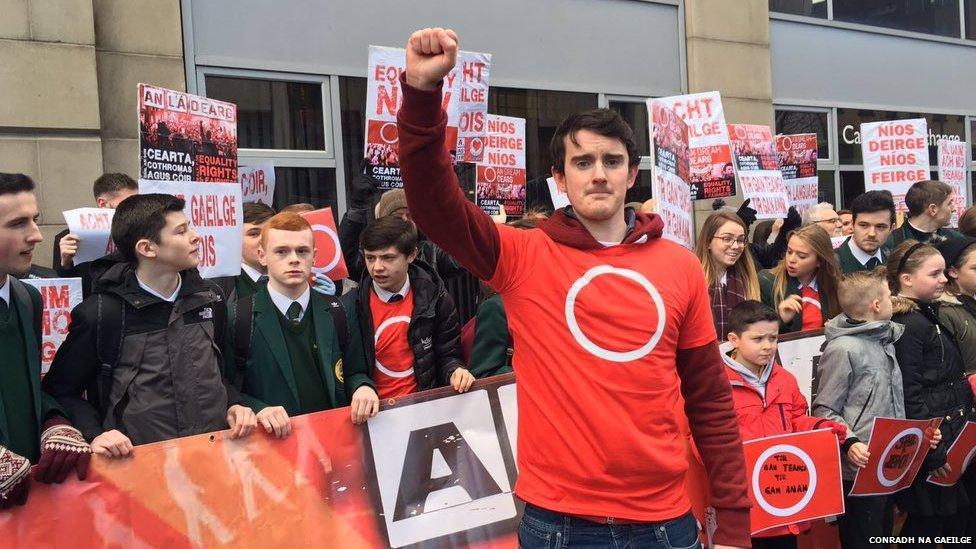
Irish is seen as important to the wider nationalist community as a symbol of identity
Despite endless rounds of discussions, a deal to restore devolution has proved elusive with the introduction of an Irish language act seen as the main issue.
- Published25 October 2017
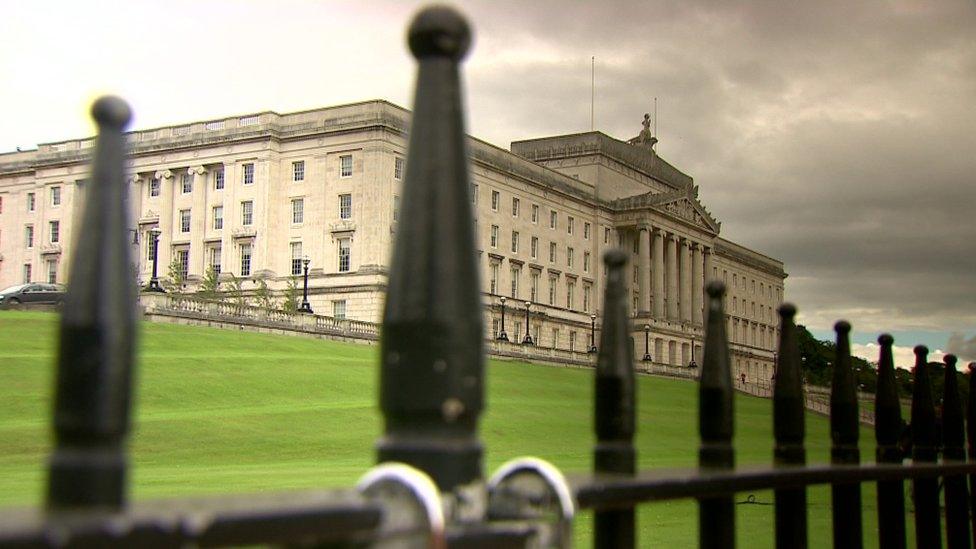
- Published25 October 2017
